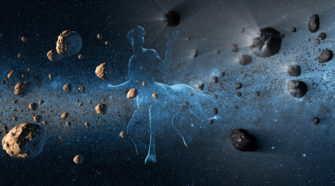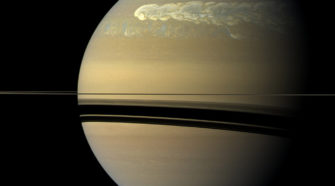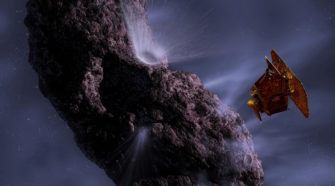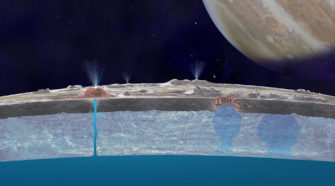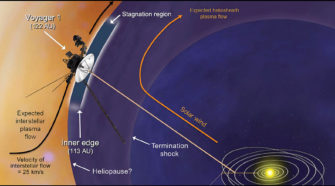Solar System
WISE finds mysterious centaurs may be comets
The true identity of centaurs, the small celestial bodies orbiting the sun between Jupiter and Neptune, is one of the enduring mysteries of astrophysics. Are they asteroids or comets? A new study of observations from NASA’s Wide-field Infrared Survey Explorer (WISE) finds most centaurs are comets. Until now, astronomers were not certain whether centaurs are …
Saturn’s monster storm surprises
A monster storm that erupted on Saturn in late 2010 – as large as any storm ever observed on the ringed planet – has already impressed researchers with its intensity and long-lived turbulence. A new paper in the journal Icarus reveals another facet of the storm’s explosive power: its ability to churn up water ice from …
Deep Impact comet hunter mission comes to an end
After almost nine years in space that included an unprecedented July 4th impact and subsequent flyby of a comet, an additional comet flyby, and the return of approximately 500,000 images of celestial objects, NASA’s Deep Impact mission has ended. The project team at NASA’s Jet Propulsion Laboratory in Pasadena, Calif., has reluctantly pronounced the mission …
A window into Europa’s ocean may be right at the surface
If you could lick the surface of Jupiter’s icy moon Europa, you would actually be sampling a bit of the ocean beneath. Mike Brown, an astronomer at the California Institute of Technology, and Kevin Hand from NASA’s Jet Propulsion Laboratory, have detailed the strongest evidence yet that salty water from the vast liquid ocean beneath …
Never ending journey: Voyager spacecraft still making discovery near boundary of solar system
For more than thirty years, a pair of twin NASA spacecraft have been on an epic journey through the solar system. A journey that is arguably one of the greatest adventures in the history of mankind. They have travelled farther than any man-made objects ever have, and will soon leave our cosmic neighborhood and become …

